Electric car charging cables explained
Charging cables are essential for electric cars, but you may be considering buying a replacement or an extra one. Here’s everything you need to know before you do...
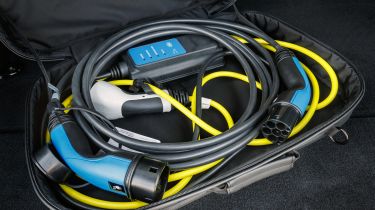
If you buy a new electric car, it’s likely to arrive with two charging cables: one for recharging from a three-pin socket and another 'Type 2' cable which you’ll need if you want to use some public charging points or home wallboxes.
But, if for some reason your car doesn’t arrive with both (if the manufacturer doesn’t supply them as standard, for example), you’re going to need to consider getting one or both yourself.
Why? Without a Type 2 charging cable, you won’t be able to use some non-rapid public charging points that require you to provide your own charging cable. And, while it’s unlikely you’ll rely on one exclusively, three-pin charging cables can be helpful when you arrive somewhere in desperate need of topping up your battery, but without a dedicated wallbox in sight.
Some may need or choose to buy an extra charging cable because the supplied one isn’t long enough, or in case their main cable is damaged by accidentally driving over it or snagging it. And sometimes people want a spare just because they fear being stranded if something unexpected happens – which could include accidental damage, theft or a fault.
Here we take a look at what you need to know about charging cables, whether you’re looking at buying your first electric car, or in search of an additional charging cable.
Charging cable specifications
If you’re buying a charging cable for an electric car, it’s obviously important to choose the correct one. There are three primary factors to consider when shopping for a cable: connector types, power/phase ratings and cable length. When buying aftermarket cables, you may also have the choice of flat or coiled cables, and you should always check products for relevant EN 50620:201 certification markings to ensure they're manufactured to required safety standards.
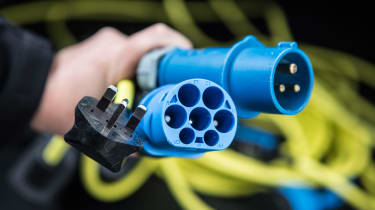
Charging cable connectors
There are a variety of charging cable connectors in common use for electric cars, and if you don’t know which one features on your car, it’s easy to tell them apart at a glance – but the handbook will tell you, too. The variants are Type 1 or Type 2 for cars compatible with fast chargers, and CCS or CHAdeMO for cars compatible with rapid chargers.
The seven-pin Type 2 connector has become the more popular European standard for fast charging when using a wallbox (7-22kW), but plenty of older cars use the Type 1 five-pin connector for charging at those speeds.
When you need a quick top-up of your batteries, you’ll need to use a rapid or ultra-rapid charger, which in Europe have CCS connectors, recognisable by its twin layout. The CHAdeMO connector uses a single round socket, and this type of connector is generally used by Japanese and some South Korean electric cars.
Power/phase ratings
It’s vital to choose a charge cable that’s rated to carry enough current to charge your electric car’s battery in the optimum time. Cables typically come in 16amp and 32amp formats, and the latter will be heavier and thicker – it needs a fatter wire to carry more current. A 7kW wallbox will have a 32amp supply, while 3.6kW wallboxes are typically limited to 16amps.
Sometimes it’s worth buying a 32amp cable even if your current car’s on-board charger is only rated to 16amps, because you may wish to use the cable for another, higher-rated vehicle later on. However, 32amp cables are heavier, and therefore a bit more awkward to handle, which can put people off.
Domestic power supplies are generally single-phase unless professionally converted, but if you want to use other fast chargers at the best speeds, you’ll need a three-phase compatible cable. A three-phase cable will also work on single-phase charging setups.
Coiled charging cables
Coil cables are wound like a spring and stretch and retract automatically when used. They're often easier to use from a wallbox in the garage, although the springiness means their reach is typically significantly less than the stated length, and they can look unsightly compared to a flat cable put away neatly by the user. If you want a portable cable to carry in the car, flat cables are generally the ones to pick.
Charging cable storage
Although charging cables are designed for outdoor use, leaving them lying around in all weathers and under constant exposure from the sun can degrade them quicker. They'll also be exposed to more chance of accidental damage, or even theft. Cable manufacturers therefore often supply storage bags or tidy clips for cables, which, as well as keeping things tidier in the boot of your car, can also protect your cable from expensive wear and tear.
Recommended
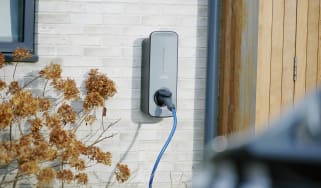
Best home electric car chargers 2023-2024: how to choose the right EV wallbox
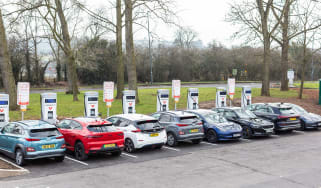
Complete guide to the InstaVolt charging network
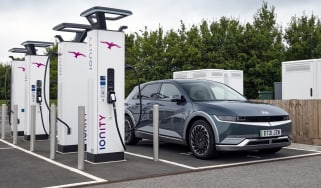
Complete guide to the IONITY rapid-charging network
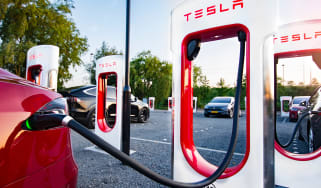
Tesla Supercharger network: complete guide to Tesla charging stations
Most Popular

Vauxhall Corsa Electric price cut makes it cheaper than a petrol Corsa
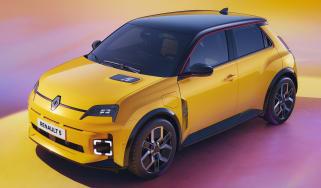
New Renault 5: prices, specs and on sale date
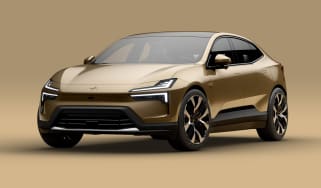
New Polestar 4: prices, specs and summer 2024 release date